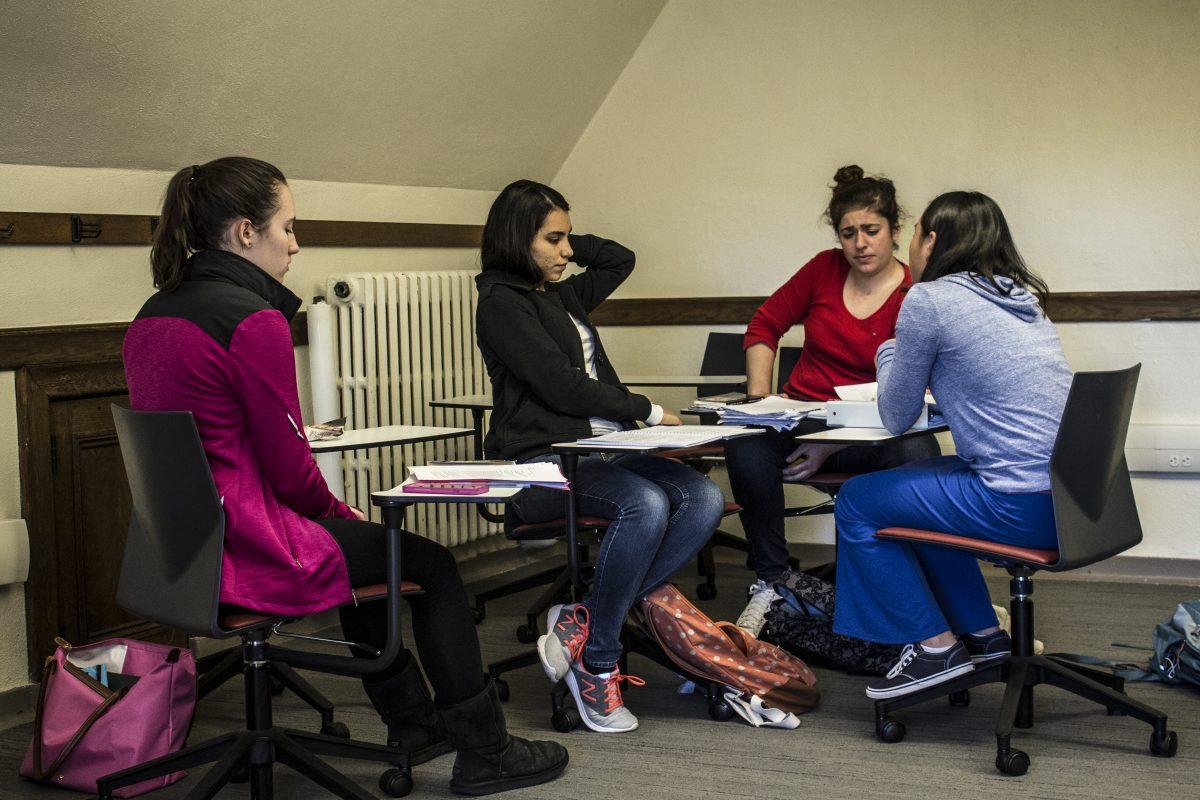The anthropology department has finally released its exhaustive, five-year-long study of Wellesley’s in-class argumentative habits. The study, conducted in at least one class from every department, produced alarming results. The most notable result: 62 percent of Wellesley students will argue in class even when they clearly haven’t done the reading.
The number is shocking, but the study examined a few contributing factors. First off, Wellesley professors commonly dedicate a large portion of class credit to participation. Second, readings are often long and dry. Third, students are generally more interested in arguing than reading.
For some, the figure comes as no surprise. Jackie Garcia ’18 is currently taking an introductory Women’s and Gender Studies course with an overwhelming workload. When she sat down for her interview, she immediately admitted to arguing before finishing her homework.
“I just don’t see why I need the complete nuanced argument of a 60-page essay when I could just read the introduction and then immediately argue with the first person who says something I disagree with,” Garcia said. Gesturing to her quickly dwindling Papercut reserve, she added, “I only have 24 cents left. I’m done printing for the rest of the semester.”
Considering all of the incomplete reading, the 62 percent of people flying under the radar is truly astounding. When asked how she still earned her participation grade, Garcia explained that she has the humanities down to a science.
“I have a few subtle tricks,” Garcia said with a grin. “For example, you just start every comment you say by gesturing vaguely at the last person to speak, and then you say, ‘Going off of what she said…’ and then you just re-word whatever she said. Nobody notices, but it’s sly.”
And that’s not the only ace Garcia had up her sleeve. “Another thing you can do is find a single well-written sentence. Then you just say, ‘I thought this sentence was really interesting.’ Don’t go any farther than that. Kick off a discussion, you know?” Garcia said.
Noting that her professors have “a Ph.D., not ESP,” Garcia said there was “no way” her professors could detect that she hadn’t done the reading when she employed her artful speculation tactics.
“You know, I’m still not really sure what hegemony means,” Garcia said with a shrug. “But I don’t need to. Not when I can just re-word the most recent insightful discussion comment.”
Though it may not show the best side of the average Wellesley student, the study is potentially groundbreaking. While most studies show women to be passive and unwilling to speculate in arguments, this study has shown that 74 percent of every in-class statement at Wellesley is complete BS.
Rose Leopold, a professor in the Women’s and Gender Studies department, happily weighed in on the issue.
“Truly, the best example of the Wellesley Effect is our students’ willingness to give their opinion freely — even when it is completely misinformed and built on a maximum of ten pages of critical reading,” Leopold explained.
But after spending approximately one third of her life in higher education, Leopold knows every BS trick in the book — and she doesn’t mind. “I dedicated my life to making teenagers read Judith Butler,” Leopold said with a heavy sigh. “Hell, I don’t want to read Judith Butler. No one wants to read Judith Butler.”
Leopold, who once had a train of six consecutive students begin a statement with “Going off of what she said,” says she’s learned to put a positive spin on in-class arguments.
“Every time I see two people arguing when they have no clue what they’re talking about, I just think, hey, these guys are the future of academia — and they’re gonna fit right in.”
The anthropology department anticipates that their study will prompt on-campus discussion. Students across campus are already reading the first five pages and developing arguments accordingly.



